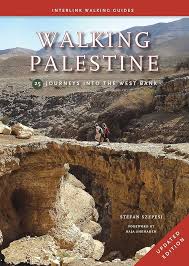The Historical and Cultural Importance of Palestine

Introduction
Palestine, a region steeped in history and cultural significance, has been at the center of geopolitical discussions for decades. The ongoing Israeli-Palestinian conflict highlights the complexity of issues surrounding claims to land, identity, and statehood. Understanding Palestine is crucial for grasping the intricate dynamics at play in the Middle East and their implications for both regional stability and international relations.
The Historical Context
Palestine has a rich historical tapestry that dates back thousands of years. As a region considered sacred by Judaism, Christianity, and Islam, it has been the birthplace of many civilizations. Notably, cities like Jerusalem, Bethlehem, and Hebron are central to religious and cultural narratives across multiple faiths. The modern political context of Palestine emerged from the fallout of World War I, the decline of the Ottoman Empire, and the subsequent British mandate. The establishment of Israel in 1948 led to conflict, displacement, and ongoing disputes over land rights and sovereignty.
Current Events
Since the most recent flare-ups in violence, international attention on Palestine has escalated, particularly following incidents in late 2023. The conflict has intensified with reports of airstrikes in Gaza, resulting in significant casualties and humanitarian crises. Organizations like the United Nations and various NGOs are actively involved in providing aid and calling for ceasefires. Diplomatic efforts by countries around the world continue as leaders seek pathways towards peace negotiations amidst escalating tensions.
Cultural Heritage
Palestine’s cultural heritage is vast, characterized by traditional music, art, cuisine, and literature that reflect its diverse history. Organizations such as the Palestinian Museum and various cultural festivals promote the vibrant heritage that endures in the face of adversity. Despite political struggles, Palestinian identity thrives through art and cultural expressions, showcasing resilience and a deep-rooted sense of place.
Conclusion
The situation in Palestine remains a focal point of international diplomacy, with significant implications for peace and stability in the Middle East. The rich history and ongoing struggles faced by its people highlight the need for continued dialogue and understanding. As the global community watches closely, the future of Palestine will ultimately hinge on the commitment to constructive engagement and resolution of long-standing grievances. For readers, staying informed about these developments is essential not only for comprehending the geopolitical landscape but also for empathizing with the diverse narratives that shape this historical region.


